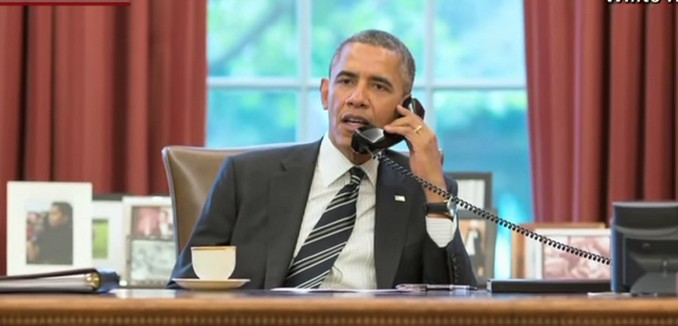The Obama administration sees the recently concluded nuclear deal between the P5+1 nations and Iran as the first step towards greater cooperation between the United States and the Islamic Republic, The New York Times reported Saturday.
What the president and his aides do not talk about these days — for fear of further antagonizing lawmakers on Capitol Hill who have cast Iran as the ultimate enemy of the United States — are their grander ambitions for a deal they hope could open up relations with Tehran and be part of a transformation in the Middle East.
Specifically, the administration believes that it may be able to talk Iran out of its support of Syrian President Bashar al-Assad.
Administration officials say Mr. Kerry is hopeful that once the nuclear accord is solidified, he will be able to begin talking with the Iranians about ending their support for President Bashar al-Assad of Syria. “Russia and Iran are the two biggest supporters of the regime” in Syria, said a senior administration official, who spoke on condition of anonymity because public comment had not been authorized. Mr. Obama has already spoken to Russia’s president, Vladimir V. Putin, about removing Mr. Assad, the official said.
An unnamed official also suggested that engagement with Iran could lead to even broader military cooperation.
But the official said the administration would be open to talking with Iran about its battles in Iraq against the Islamic State as the United States fights its own parallel war against the terrorist group.
The Times noted that rapprochement with Iran “worries America’s closest Arab allies, like Saudi Arabia.”
This outreach, according to Frederic C. Hof, a former State Department official in the Obama administration, is not likely to work in regards to Syria. Hof observed that he didn’t “see any evidence that Iran” was interested in a negotiated solution for removing Assad from power.
The Times also reported that, though President Barack Obama has made speeches outlining his hopes for greater cooperation with Iran in a number of instances in recent months, he has also framed them in the context of the nuclear deal. The reason for de-emphasizing the administration’s aims in this regard were explained by Karim Sadjadpour of the Carnegie Endowment for International Peace, who said “If they sell this as transformative, and in the immediate term Iran takes more reactionary actions, such as locking up more people, then the administration will be setting themselves up for failure.”
Former White House official, Michael Doran, observed this strategy earlier this year, writing that America’s and Iran’s “shared interest would provide a foundation for building a concert system of states—a club of stable powers that could work together to contain the worst pathologies of the Middle East and lead the way to a sunnier future.”
The New York Times in March reported that the United States had tacitly allowed Iran to take over Iraq, and in January reported, “that Washington is simply trying to disengage and offload the Syria problem to Mr. Assad’s allies, Russia and Iran, even at the cost of empowering them.”
[Photo: CNN / YouTube ]




